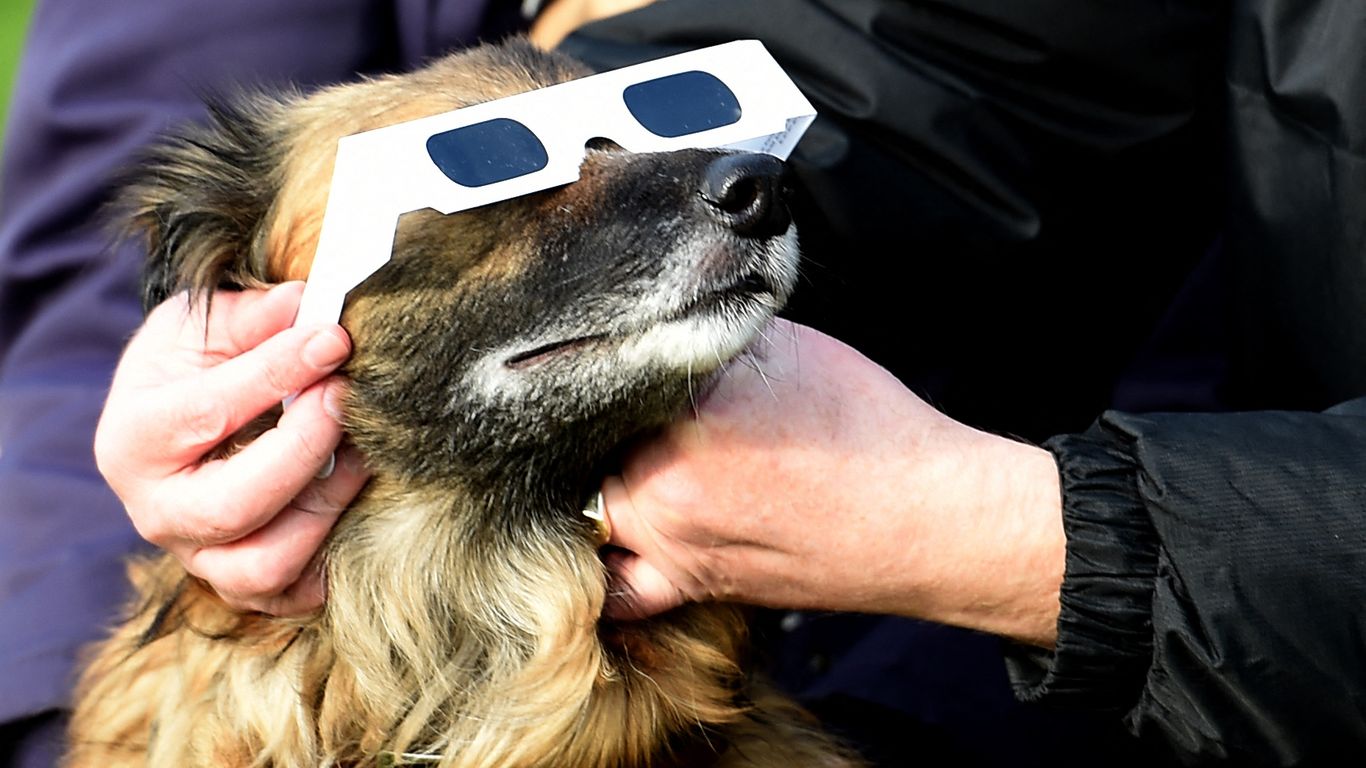Ohio wants your help to see how animals react to the solar eclipse
Most of the data we have now is largely anecdotal. The Ohio Department of Natural Resources (ODNR) is encouraging public observations about wildlife behavior during a solar eclipse, hoping to gather data from the event. The state is asking people to make observations 30 minutes before the eclipse's totality, during, and after, respectively, during the event, which is expected to yield insights into animal behavior. The observations could include sights, sounds, and smells that could indicate unexpected behavior changes. The data will be collected via the app iNaturalist. Participants can follow instructions on how to participate on the app.

Published : a month ago by Ned Oliver in Science
Some people even give their dogs protective eclipse glasses. Photo: Paul Ellis/AFP via Getty Images
Are humans the only animals who get super worked up about eclipses? Next week is an opportunity to help scientists find out. The big picture: There are reports that birds quiet, spiders tear down webs, and squirrels retreat to their dens. But most of the information we have on wildlife behavior during a total solar eclipse is anecdotal or based on observations of captive animals.
• The Ohio Department of Natural Resources is hoping to crowdsource observations about how animals react when the sky suddenly darkens.
What they're saying: "We're asking people to make observations 30 minutes before totality, during, and 30 minutes after," Jen Dennison, an education and outreach manager with ODNR, tells Axios.
• "They could be sights, sounds, and smells — anything that shows that there could be some kind of behavior change that we're not expecting."
Zoom in: The state is collecting the observations via the app iNaturalist.
• You can find full instructions for how to participate on iNaturalist's website.
What to expect: Officials suggest making some practice observations before the big day, but otherwise participating shouldn't require much preparation.
